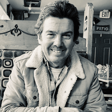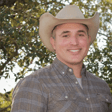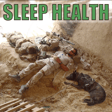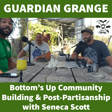
Unplug Technology & Reconnect with What Matters | Special Guest Anya Pechko
It's no secret that technology has overtaken the lives of most people in modern society, but is this really the best path forward for humanity?
Does it enrich communities and cultures, or does it erode them?
As technologay continues to advance, do humans advance as well, or are we left in a neglected, apathetic state?
Is it optimal, or even healthy, for children to grow up technology addiction?
Guardian Grange is all about reconnecting as humans within our highest natural state, and in this episode founder, Mark "Matz" Matzeldelaflor, chats with Anya Pechko of Project Be to discuss community, social cohesion, and going back to our natural roots with a nurturing mindset and collective entreprenuership.
There is a big part of our society that is struggling, and humanity needs to be nurture at the moment. Anya and Mark's visions align in that they both feel its part of our human duties to help when we identify ways to be of service.
We all could use more connection...
We should work to improve ourselves and set good examples for younger generations who are learning how to be in this world.
The media is sick and filled with divisive content and corporate propaganda, and nothing seems to be changing for the better from within the system. Therefore it is up to us to step up and build parallel structures that focus on the nourishment of family, community and living in balance with the natural blessings of this earth.
We cover a lot in this conversation, but it can all be summed up with shifting the focus of humanity to get back to reality and value nature.
Find more information about PROJECT BE below:
But first, thank you for listening to the Guardian Grange podcast. We are a grass roots movement sowing the seeds for a soil-based economy. Please find us on social media and join our email list to stay updated with our projects as we grow. Feedback is always welcome and encouraged!
How To Support The Podcast & Guardian Grange Vision
Please share this podcast with friends and family, and stay connected to Guardian Grange on social media (Instagram, Facebook, Twitter, YouTube, etc.) and at our website www.guardiangrange.org to follow along with our progress as we help transform the world into a more beautiful, healthy, and friendly place one community at a time.
Guardian Grange is a registered non-profit 501(c)(3), EIN 85-3841605. Contributions are tax deductible.
Your donation supports our efforts to improve humanity and the environment by uplifting veterans to protect natural resources and strengthen communities.
Donations
You can also donate through our website here https://www.guardiangrange.org/support/
Subscribe to the YouTube channel here so we can hit 100 subs and secure our channel name found here: https://www.youtube.com/channel/UCoggg7qUsc7HFAticoKn4gA
Learn more about PROJECT BE below:
Between then and now we lost sight of what it means to just…BE.
Project BE raises awareness about the growing dangers of media (influence & addiction) and inspires others to shift their habits to live happier, healthier lives.
Project Be is raising awareness by leveraging expertise, evidence-based science, and current events to reveal the complexities occurring beneath the surface of daily life.





